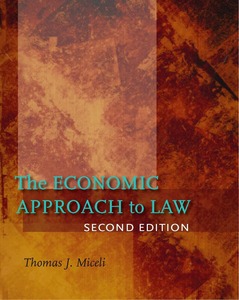Chapter 4
The statute of frauds
The Statute of Frauds was originally passed by Parliament in 1677 and required contracts exceeding a certain value (most commonly, contracts for the sale of land) to be in writing. Nearly every state in the U.S. has some version of this statute. Is there an economic rationale for such a requirement? In particular, what are the offsetting costs and benefits, and why would contracting parties have to be compelled to put certain contracts in writing?
When a contract is not in writing, two types of legal error can result: the court can find an enforceable contract when none was intended (a type I error), or it can find that no contract exists when one was intended (a type II error). A type I error can arise when a party falsely claims that another party had made a contract with him, and a type II error can arise when a party seeks to get out of a contract that has turned out to be unfavorable to him. Written contracts enhance efficiency by reducing the likelihood of these types of errors, but the gain must be weighed against the cost of putting the contract in writing. It follows that not all contracts should be in writing. Since the more valuable a contract is the costlier will be an enforcement error, it makes sense that more valuable contracts should be the ones put in writing.
But why is a statute is necessary to achieve the efficient outcome? Although the immediate parties to a contract internalize the cost of putting it in writing, as well as the cost of non-enforcement of their intended contract (a type II error), they do not internalize the cost of false claims by third parties that a contract exists (a type I error). As a result, contracting parties will tend to put too few contracts in writing, absent a statutory requirement.
